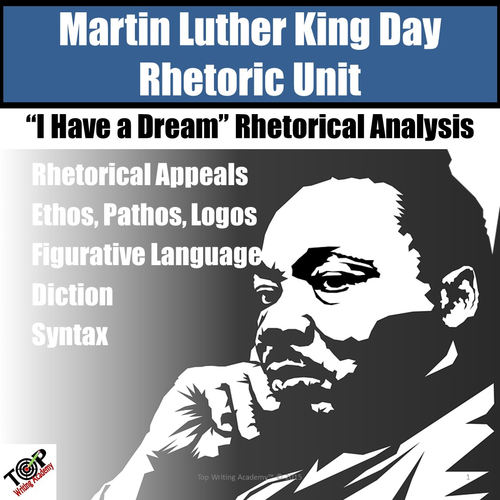
Martin Luther King Jr. I Have a Dream Close Read Rhetorical Analysis Teaching Resources
Martin Luther King, Jr.'s "I Have A Dream" speech was a life-affirming call to all people to live together in love. But it was something else too: a literary masterpiece. King taught us a lot about peace and understanding, but we at Writer's Relief believe he also has a lot to teach writers about rhetoric.
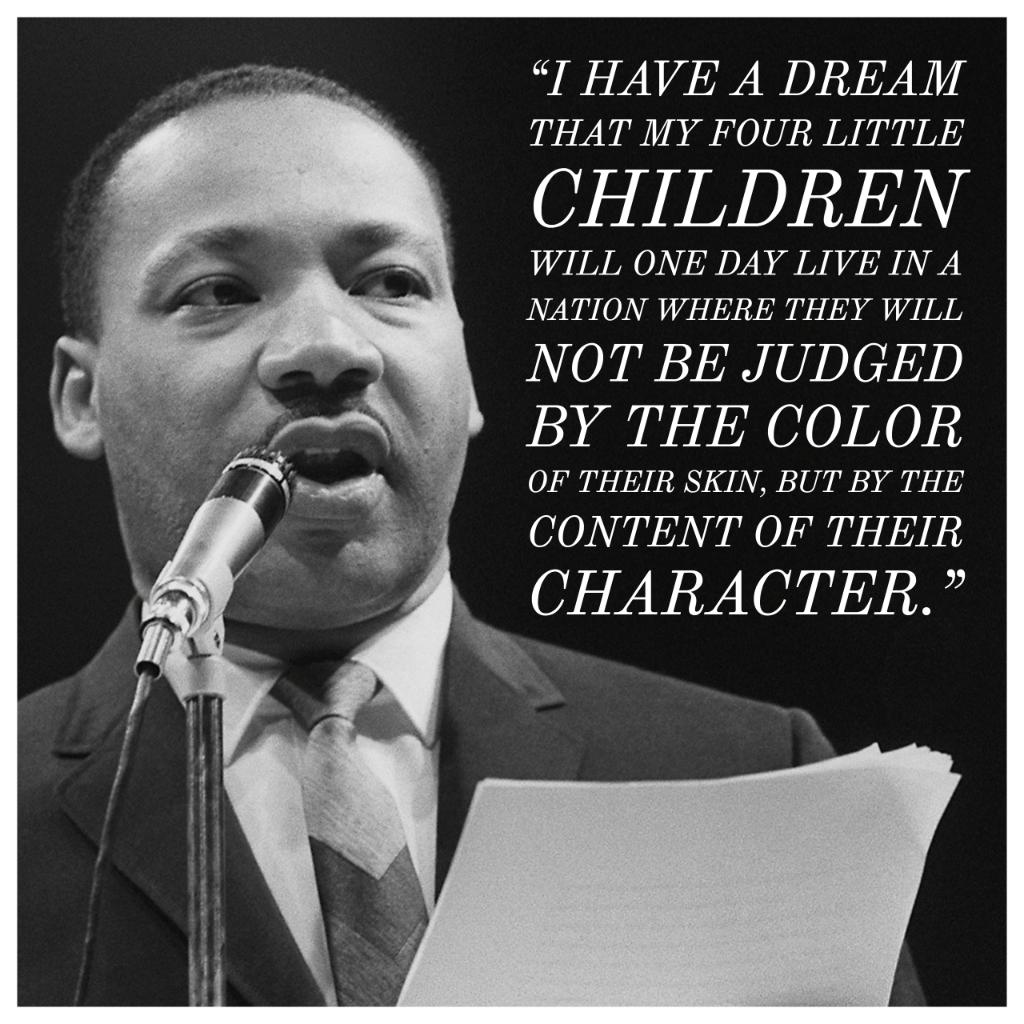
The Importance Of Martin Luther King, Jr.’s “I have a dream” Speech Youth Are Awesome
5-2018 Martin Luther King Jr. Rhetorical Analysis Mandi Rocker Follow this and additional works at: https://digitalcommons.kennesaw.edu/emergingwriters Part of the Rhetoric and Composition Commons Recommended Citation Rocker, Mandi (2018) "Martin Luther King Jr. Rhetorical Analysis," Emerging Writers: Vol. 1 , Article 14.

The Use of Rhetorical Devices in I Have a Dream Speech by Dr. Martin Luther King Jr. [Essay
Martin Luther King's famous "I Have a Dream Speech" is known for its skillful, impactful use of rhetorical devices. These devices are used to connect with listeners on an emotional.

MLK by 3
The "I Have a Dream" speech, delivered by Martin Luther King, Jr. before a crowd of some 250,000 people at the 1963 March on Washington, remains one of the most famous speeches in history.

Rhetorical Analysis Martin Luther King Jr. and Malcolm X with Google Slides Rhetorical
"I Have A Dream": Annotated Martin Luther King, Jr.'s iconic speech, annotated with relevant scholarship on the literary, political, and religious roots of his words. Dr Martin Luther King Jr waves to the crowd gathered on the Mall after delivering his "I Have a Dream" speech at the March on Washington, August 28th, 1963 Getty By: Liz Tracey
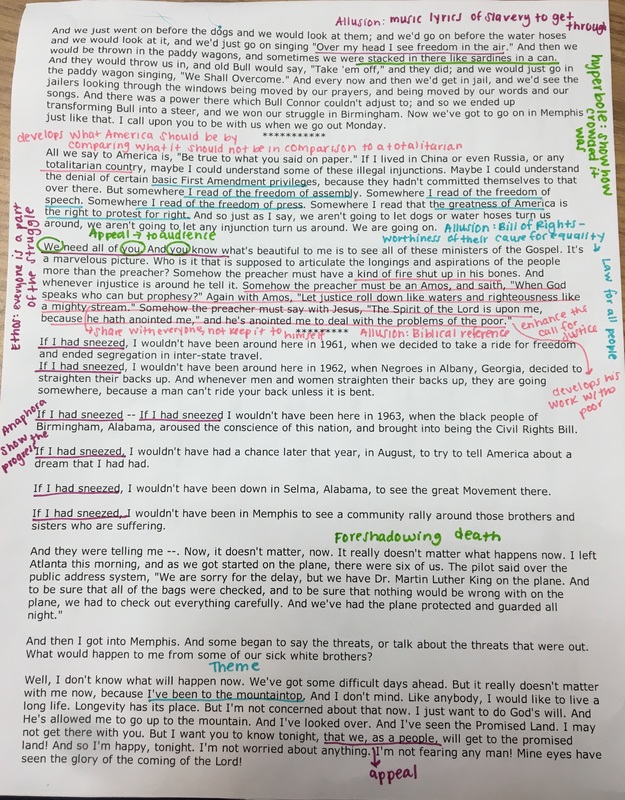
Martin Luther King Essay Rhetorical Devices
Martin Luther King then comes to the most famous part of his speech, in which he uses the phrase 'I have a dream' to begin successive sentences (a rhetorical device known as anaphora ). King outlines the form that his dream, or ambition or wish for a better America, takes. His dream, he tells his audience, is 'deeply rooted' in the.

Martin Luther King Day I Have a Dream Close Read and Rhetorical Analysis Rhetorical device
News Releases Why "I Have A Dream" Remains One Of History's Greatest Speeches Professor of Communication Leroy Dorsey explains the rhetorical devices used by Rev. Martin Luther King, Jr. in his 1963 speech and reflects on why the address remains relevant. By Lesley Henton, Texas A&M University Division of Marketing & Communications January 15, 2020
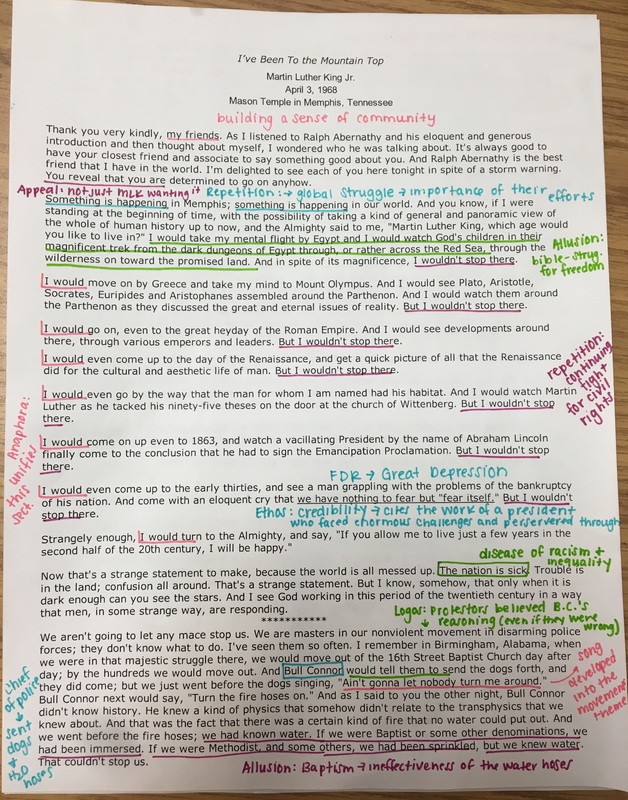
😀 Rhetorical devices in martin luther king speech. rclpsuexperience. 20190303
Learn about the political and social context behind Martin Luther King, Jr.'s famous "I Have A Dream" speech, the rhetorical devices that helped its concepts.
Martin Luther kings I have a dream speech, rhetorical devices X... Course Hero
Chapter 10: The Rhetorical Situation Martin Luther King, Jr. speaking at the University of Minnesota, 1967. Minnesota Historical Society. CC BY-SA 2.0. This chapter is about the rhetorical situation. The rhetorical situation is a framework for rhetorical analysis designed for individual speeches and assessing their reception by an audience.

Dr. Martin Luther King, Jr A Rhetorical Analysis Unit Rhetorical analysis, Rhetoric, Martin
Dr. Martin Luther King, Jr. uses metaphor in his speech to create an understanding of how Black American feel. He compares segregation to deserts, valleys of despair, and shadows. He also.
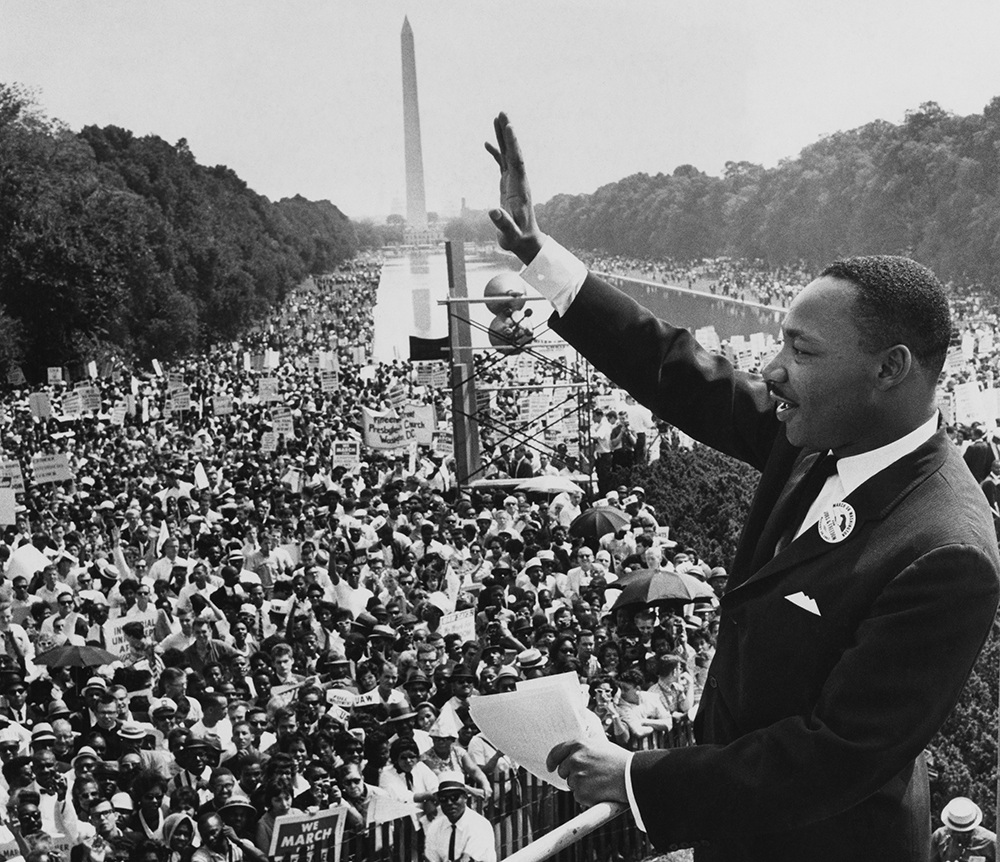
Why “I Have A Dream” remains one of history’s greatest speeches The College of Arts & Sciences
Allusions. In his statement on the assassination of Martin Luther King Jr., Robert F. Kennedy alludes to the assassination of his brother, former President John F. Kennedy: For those of you who are black and are tempted to be filled with hatred and distrust at the injustice of such an act, against all white people, I can only say that I feel in.
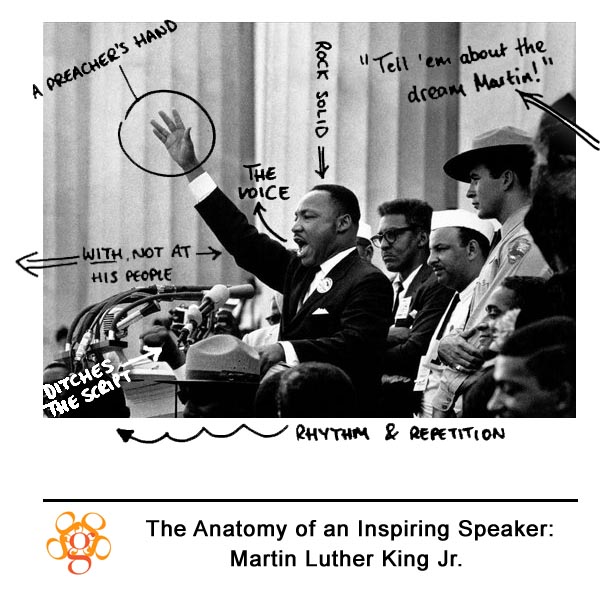
i have a dream speech analysis rhetorical devices
AFP via Getty Images. Monday marks Martin Luther King, Jr. Day. Below is a transcript of his celebrated "I Have a Dream" speech, delivered on Aug. 28, 1963, on the steps of the Lincoln Memorial.

Martin Luther King Day I Have a Dream Close Read and Rhetorical Analysis Rhetorical analysis
Many literary devices are used in Martin Luther King Jr.'s "I Have a Dream" speech. Some of the most prominent ones are alliteration, allusion, hyperbole, and imagery. Dr. Martin Luther King Jr.
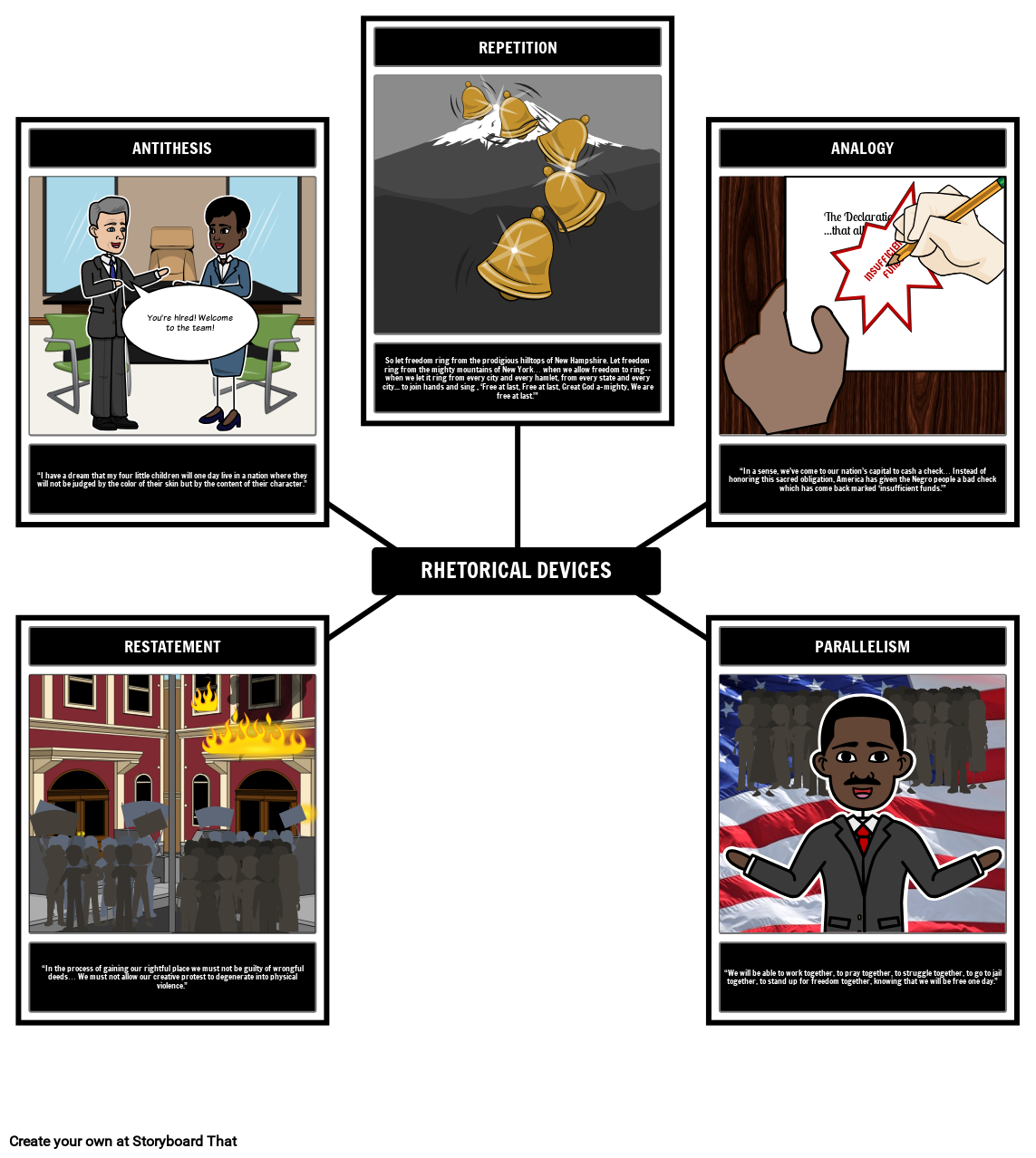
😀 Stylistic devices in i have a dream speech. Literary Techniques of Martin Luther King's I Have
Allusions are among the most important devices that King uses in his "I Have a Dream" speech. King predominantly alludes to the Bible and to the US founding documents. These allusions tie.

😀 Stylistic devices in i have a dream speech. Literary Techniques of Martin Luther King's I Have
In the shadow of the statue of Abraham Lincoln, Dr. Martin Luther King, Jr., delivered his now famous "I Have a Dream" speech on August 28th, 1963, as part of the March on Washington. King spoke.
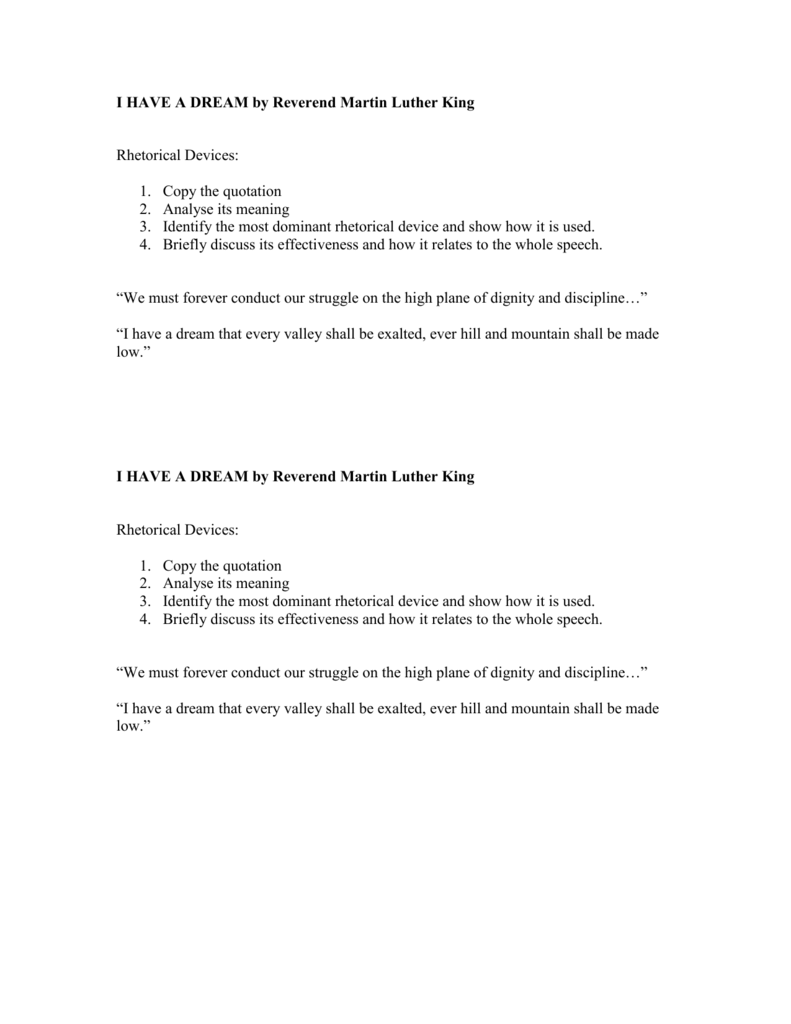
😂 Rhetorical devices in martin luther king speech. Martin Luther King I Have a Dream Speech
Martin Luther King Jr. delivered his "I Have a Dream" speech to an audience of over 250,000 people at the March on Washington in August of 1963. The march was one of the largest civil rights rallies in American history, and it came at a crucial moment in the decades-long struggle for civil rights. The successes of the Montgomery bus boycott.